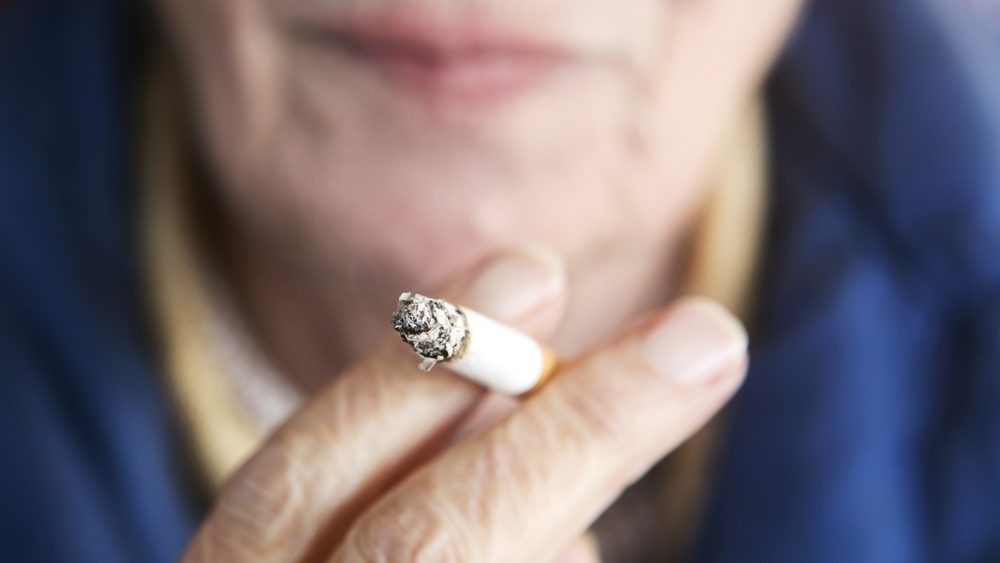It has become so common for people to make false assumptions about aging, that it can be hard to filter between true and false information that’s been going around. People want to know this type of information in order to be prepared for when the time comes for some changes to happen.
But aging doesn’t have to be perceived as something negative, but more as a natural process that will inevitably happen and it has some positive aspects as well. There are some things you can do to preserve your overall health by maintaining a healthy lifestyle.
We have conducted this list of 7 facts about aging in hopes to clear up the rumors that are constantly making people afraid of growing ”old”, so keep reading to see what to expect.
1. You will get dementia when you get old
Dementia is not a normal component of the aging process. Although the risk of dementia increases with age, it is not unavoidable, and many individuals survive into their 90s and beyond without experiencing the major deficits in thinking and behavior that characterize dementia.
Occasionally forgetting a birthday or misplacing your keys are indicators of moderate forgetfulness, which is extremely common at all ages.
According to the Alzheimer’s Association, only approximately 3% of Americans aged 65 to 74 have dementia (including Alzheimer’s disease, the most prominent kind of dementia). Some age-related mental loss can be prevented by eating a well-balanced diet, being physically active, and trying to challenge yourself intellectually as a lifelong learner.
Nonetheless, if you notice having constant memory issues or changes in personality, you should definitely see a doctor and address you concerns. These issues can have a variety of reasons, some of which are curable or reversible. Finding the root reason is critical for determining the appropriate next steps.
2. Older people shouldn’t exercise

Older people are often times associated with sedentarism, since it’s widely thought that physical exercises may be dangerous or harmful for your body from a certain age, especially if you suffer from a condition. However, many studies have shown that being active has a lot more benefits than sitting around all day. Inactivity is the responsible factor that makes people lose the ability to do things by themselves.
Almost all types of people can engage in some sort of physical activity and it doesn’t have to be too intense. Getting your body moving is very important if you want to maintain a healthy lifestyle and even prevent some diseases or health issues in general.
Physical activity and exercise are not only good for your wellbeing, but they may also help you stay self-reliant as you age. Tai Chi and other mind-body movement techniques have been demonstrated to enhance balance and strength in older persons, which can help them keep their independence and avoid accidents in the future.
So aging shouldn’t stop you from being active!
3. You are not allowed to drive after a certain age
As the U.S. population ages, so will the percentage of licensed older persons on the road. In 2016, the Federal Highway Administration (FHWA) reported a record-high of 221.7 million permit holders in the United States, including 41.7 million — or nearly one in every five — who are 65 or older.
Natural changes in a person’s ability to drive, such as slower response speed, poorer vision or hearing, and less strength or mobility, might occur as they age. The topic of when to limit or stop driving should not be based on age, but rather on one’s capacity to drive safely. So if you think that you or a loved one do not have the proper abilities to drive, you should talk to your doctor about any concerns regarding your health.
4. Older people need less sleep
People may find it more difficult to fall and remain asleep as they become older. A widespread deception is that as people become older, their need to sleep decreases. A good night’s sleep can also help you avoid accidents and enhance your general mental health, among other things.
Seniors, like other adults, require 7-9 hours of sleep every night, as per the National Institute on Aging, but hormonal changes in their bodies might make obtaining enough sleep challenging. Of all, getting a decent night’s rest as a senior is just as crucial as it was in early adulthood.
Not getting enough sleep isn’t the only issue to consider as you get older; getting too much sleep can also be a problem. According to new study, both short and lengthy sleep duration are linked to cognitive decline, depressive symptoms, and possibly Alzheimer’s disease in older persons.
So if you have trouble getting the recommended amount of sleep, you should definitely try out these vegetarian supplements for an uninterrupted sleep and thank us later!
5. Depression is a normal symptom of aging

Some people may feel disconnected and alone as they get older. Depression, worry, and sadness may be a result of this. These feelings, however, are not a typical aspect of aging itself, since there are many emotional benefits to growing older, such as long-lasting friendships and family ties, as well as a lifetime of experiences to share with dear ones.
In fact, research suggest that elderly persons are less prone than young adults to suffer from depression. Life changes, such as losing a loved one may cause depression or other feelings, but this is caused by circumstances, not by aging itself.
When do you need to be concerned? It’s crucial to note that elderly people with depression may show fewer symptoms or be less willing to talk about their feelings. Depression is a widespread and sometimes dangerous mood illness, although most individuals may benefit from therapy. But aging does not guarantee depression!
6. You will lose interest in sex
This is a myth that’s been persisting over the years due to lack of studies regarding seniors’ sexual health and activity. A 2017 study on people of ages between 50 and 80 showed that approximately 65% of the respondents were interested in sex.
Plus, most of them agreed that sexual activities are a huge part of a romantic relationship, no matter the age, 40% of them still being sexually active. So assuming that aging will cause you to lose interest in sex is completely false.
Moreover, research has repeatedly demonstrated a link between good sexual activity and total well-being, even among the elderly. It’s still unclear whether one causes the other, but the mutual benefit is undeniable.
While sexual activity frequency tends to decline with age, one study discovered that sexual activity and feeling emotional connection to one’s partner during sexual activity were linked to greater contentment in both men and women aged 50 and older.
While some seniors experience decreased libido and impotence, these symptoms are frequently associated with curable diseases such as diabetes, high blood pressure and depression. As a result, many seniors who take care of their bodies through exercise and a nutritious diet have healthy sex lives far into their 70s.
7. You’re too ”old” to quit unhealthy habits

Your age or how long you’ve been smoking for are not so relevant; quitting this unhealthy habit is good for your health. Quitting smoking leads to fewer diseases like colds and the flu, decreased chances of bronchitis and pneumonia, and a higher general sense of well-being.
Quitting smoking has nearly immediate advantages. The concentration of carbon monoxide in your blood begins to fall in the next few hours, and your circulation and lung function improve after a few weeks. Smoking raises your heart rate and blood pressure in the short and long term, but quitting can reduce these issues over a certain period of time.
You can reduce your risk of cancer, heart attack and many other diseases by quitting smoking, so why not do it? This change not only improves the quality of your life, but of those around you as well. Smoke exposure can affect other people as well, especially children, who do not have a fully developed immune system. Plus, you’ll be saving tons of money, since cigarettes have become quite expensive these days.
So quitting smoking and establishing a good example for your kids and loved ones is never too late. If it seems too hard, these nicotine patches might help!
Having questions about aging is just a normal part of everyone’s lives, especially as you reach retirement. This is why we debunked the 7 most common myths about the aging process. While many people assume that seniors are lonely, inactive, grumpy, and unhappy, the truth is that the contrary is often correct: seniors are often times more open, lively, active, and happier than they have ever been!
Which aging myth did you think was true before reading this article? Share your thoughts and experiences in the comment section below!
And if you enjoyed this article about aging, you might also want to check out: 16 Items You Don’t Need in Retirement.











